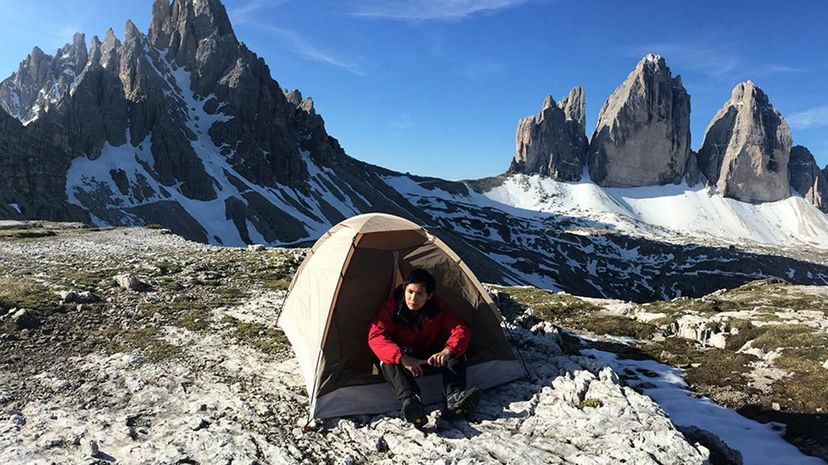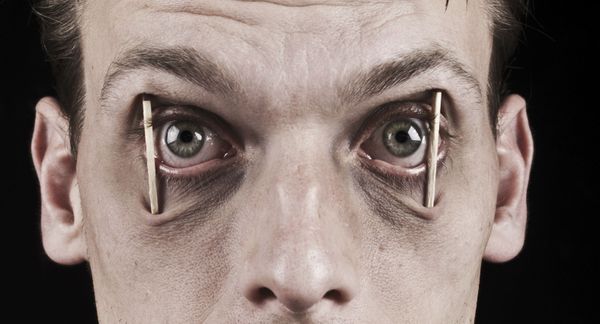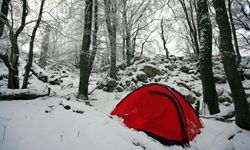
In this heady era of peak efficiency and productivity, whenappsandsoftwarepromise you the fastest path to personal or professional organization, you might even want to regulate the time you spend dozing. Betweenexcessive screen timeandlonger working hours, you might be desperate for a more natural (and probably earlier) bedtime. But setting a sleep schedule is no small matter.
A newstudyin Current Biology shows that there might be a rather simple — if not rugged — solution forsleep. A weekend of camping could be the path to an earlier bedtime.
Advertisement
不,不是因为疲惫的常数grizzly-vigilance (although that can't hurt). It's because we rely on electrical light at night and get too little exposure to daylight, so ourcircadian rhythmspush for a later bedtime. Our circadian rhythms, or our 24-hour cycle of behavioral responses to light and darkness, control our biological clocks.
The researchers studied campers for a week in the winter and a weekend in the summer to test seasonal and environmental circadian changes. During the winter, the campers used no electronic light at all. The study found that after spending time in natural light and darkness, the participants adapted to the natural light-dark cycle. They slept longer and went to bed earlier than they would in electrical environments — a whole 2.5 hours earlier for the winter group.
Notably, the research shows that even around the winter solstice, when nights are long, folks enjoyed an earlier bedtime after being out in nature for a few days. Melatonin levels, which regulate wakefulness and sleep,rose at night and fellright when the campers got up, the typical cycle. But before they tromped through the wilderness, their melatonin levels were slightly off, falling hours after they got up, meaning their bodies still desperately wanted to sleep. Camping is particularly advantageous on the weekend, the research also shows, because that's when we usually wake later and sleep later, and have circadian delays.
So, it is possible to reset our biological clocks. Just like a lot of animals, we adapt to seasonal light changes. And by simply enjoying more natural and less electric light during the day, we can be primed for better sleep at night.
Advertisement




